#heavily edited
Text








Confirmed Hit "Flash Strike"
#heavily edited#Star Wars The Bad Batch#SWTBB#Flash Strike#TIe Fighter#Imperial Shuttle#Rho Class Shuttle#swedit#starwarsedit#swtbbedit#tbbedit#science fiction#spaceshipedit#GIF#my gifs#Danny watches Star Wars The Bad Batch#flashing gif#Hide and Queue
43 notes
·
View notes
Text



#nature#photography#naturecore#darkart#flower#botanic garden#evening#autumn#orange flowers#compilation#orange flower compilation#flower aesthetic#flowercore#i tried#roses#heavily edited#autumn aesthetic
71 notes
·
View notes
Text
Aaron: Whoa, whoa, whoa! What's all this noise? I thought we all agreed that The Bounty Hunters was going to be a light-hearted throwback to 90s alternative rock, not this mess of screaming into distortion.
Kai: Look, Aaron. Kit and I were talking, and Ezra agrees. Your attitude: just isn't working for us.
Kit: We've been a lot more productive without you.
Ezra: We already wrote an angsty song about the time you made us feel bad for not being handsome.
Aaron: You're kicking me out of the band?! Wait, who's playing drums?
Kit: Izzah said she would do it.
Izzah: I'm down for whatever. *twirls a drum stick in her hand*
Aaron: Oh, come on!
@the-guild-codex-and-other-things
#Looks like Kit got the band he wanted#the guild codex#the guild codex: warped#aaron sinclair#kit morris#ezra rowe#kai yamada#izzah ramesh#source: steven universe#Heavily edited
10 notes
·
View notes
Text










Nny from Johnny the Homicidal Maniac stimboard requested by @peptobismolchuggerhabitlover!
X X X - X 🔪 X - X X X
#dont know this source so sorry if its a bit off !#stimboard#stimboards#knives stim#knife stim#blood stim#clock stim#paper stim#knife gif#blood gif#heavily edited
8 notes
·
View notes
Text
an undying belief in so much more // one day the sun will become the sky
a child arose once left upon the lawn,
like he wandered but was never found
the counting riffs like he were waiting for the end
blatently disregard the ghosts and see if he can go on without it.
lay upon me these troubles—i can handle it.
if the layers are to be seen with any clarity
we have to go deeper into this sin,
the dynamics are at an all-time-high
fail all the fates with me as we drown.
it'll be a spectacle, for sure.
please bless me as i wade into the wastes,
that my steps be covered with forethought
or a radical nature ensues and blemishes this tarnishment further,
like the winds split the hairs in half
and quelled the silent to speech.
once lay upon me, these troubles—I can handle it
with great indulgence that i finally spoke,
with a great fury did i beacon the gods like they were absent,
they knew i was the foolsayer
but these words must be said,
i cannot expel them from my mouth quickly enough
nor let the dawn tread upon us before we understand,
let the fortune spill forth into another day.
a child arose once again left behind upon the lawn,
with a lingering feeling of grand nothingness
nor a placard any of truth,
just a series of more and more convincing lies.
how can one go through life
with just a witness over the shoulder to spare,
won't you see it with your own eyes and witness
—i've been begging you.
lay upon me these troubles, i can handle it.
the mysterious cavern blares a strange tune
like the wakes of sense were left on some other planet,
the brain pulsates with over-stimulus,
and I dance with the divine
or maybe the profane
—I cannot tell.
will the omens phase through
or become ether already,
i have grown impatient of ourself of late,
can we please change again?
***
a delicate choice became upon me,
the layers unraveled finally aghasting me with the truth
a spectre leavened with the cores of all of us
meagerly spectating as the lyres die upon
these our layered fortunes.
like we never had a choice...
(03-19-23—Hi. I’m a weird poetic type of person. I occasionally come up with tremendous phrasings or a clever way to word something every so often. Everything I’ve ever written was composed to Music. I’d like to think it was all a fluke. Don’t Listen To Me.)
(Syntax and Shit!? what happens when you start to edit the Stream of Consciousness?...)
#2023#poetry#stream of consciousness#self#self-review#reflection#future#uncertainty#lets go!#music inspired#self burden#heavily edited
52 notes
·
View notes
Text
Asušunamir
Once upon a time I came across this claim on a mood board
"Asushunamir: Mesopotamian/Assyrian intersex goddex of queers, justice and transformation. Said to be the most beautiful being made of light who wore clothes made of stars."
I had never heard of a deity called Asushunamir, so I went looking.
I did a Google search specifically because it is what a person on Tumblr might do if they wanted more info. So I thought it important to look them up if I'm going to confirm or debunk.
I did find sources on them when I wrote this post originally, a few years ago, that confirmed the above quote; but a search now did not turn up much other than "Non-binary spirit who helped Inanna (or Ishtar/Inanna) escape the underworld" Which the non-binary spirit is accurate; the Inanna part is not accurate. Still better than the non-binary goddex thing. I want to edit and upload this post anyways because sooner or later the claim may spread again.
Note on my spelling: Inanna is Inana; Asushunamir is Asušnamir; Ereshkigal is Ereškigal. I do not change the spelling of direct quotes, if I do it is indicated by brackets.
🔹Asušunamir is not related to Inana🔹
Many websites claim their origin is connected to Inana and Enki or "Ištar/Inana". However, Asušunamir is not Sumerian. Therefore, they have nothing to do with Inana, Enki, or Sumerian culture even if the myth originated from Sumer.
Asušunamir is very specifically Akkadian. This is important because, like many websites state, their only real appearance is in the Descent Myth. That is to say, Istar's Descent not Inana's Descent. Which surprisingly are very different.
In Inana's Descent Enki creates two beings not one.
Here is the excerpt from the direct translation of Inana's Descent from the ETCSL [1] :
“Then Enki answered Nincubura: “What has my daughter done? She has me worried. What has Inana done? She has me worried. What has the mistress of all the lands done? She has me worried. What has the hierodule of An done? She has me worried.” (1 ms. adds 1 line: Thus father Enki helped her in this matter.) He removed some dirt from the tip of his fingernail and created the kur-jara. He removed some dirt from the tip of his other fingernail and created the gala-tura. To the kur-jara he gave the life-giving plant. To the gala-tura he gave the life-giving water.”
This is the translation given in the book "Inanna: Queen of Heaven and Earth" by Wolkenstein and Kramer. Which I heavily dislike and discourage the use of but it may be the version most Mesopotamian Polytheists use for Inana so I will add it [2]:
“Father Enki said. ‘What has happened? What has my daughter done? Inanna! Queen of all the lands! Holy Priestess of heaven! What has happened? I am troubled. I am grieve. From under his fingernail Father Enki brought forth dirt. He fashioned the dirt into a kurgarra, a creature neither male nor female. From under the fingernail of his other hand he brought forth dirt. He fashioned the dirt into galatur, a creature neither male nor female. He gave the food of life to the kurgarra. He gave the water of life to the galatur.”
The book “Dictionary of Ancient Near Eastern Mythology” by Assyriologist Gwendolyn Leick gives us this info [3]:
“from the dirt of his finger nails creates two beings. The kur.gar.ra and the gala.tur.ra (persons who formed part of Inanna’s cult personnel, maybe some sort of transvestites) Enki […] gives them the Plant and Water of life”
Expanding on the cult-personnel bit the Assyriologist Thorkild Jacobsen makes this foot note in his translation [4]:
“What Enki creates is two types of professional mourners […] kurgarû was a member of the cult personnel around Inanna at Uruk.”
In Inana’s Descent Myth they sneak their way through cracks in Kur’s (Underworld) seven gates.
Ereškigal is preforming typical mounring expressions that were common in Mesopotamian cultures. In lines 226-235 & lines 254-262 of the ETCSL entry she is described unflatteringly as laying down and lamenting the death of her unnamed children
The mother who gave birth, Erec-ki-gala, because of her children, was lying there.
In addition lines 236-245 & lines 263-272 she's described as troubled with a painful heart & liver.
They sympathize with her; when she moans “oh my heart,” they join in “You are troubled, oh mistress, oh your heart.” Lamenting with someone was seen as an act of kindness.
Thus after they have sympathized with her she offers them a river full of water or a field full of grain as a thank you. They refuse and request the corpse “hanging on the hook,” which is Inana.
🔹Origin in Ištar's Descent🔹
This is vastly different compared to what Ereškigal is doing in Ištar’s Descent; she is not lamenting. It is also very different then the way Asušunamir’s gets Ištar back. Here is a direct-ish translation by E. A. Speiser [5]:
“Ea in his wise heart conceived an image; and created Asushunamir, an enuch: “Up, Asushunamir, set thy face to the gate to the Land of No Return; the seven gates of the Land of No Retuen shall be opened for thee. Ereshkigal shall see thee and be rejoiced at thy presence. When her heart has calmed, her mood is happy, let her utter the oath of the great gods. (Then) lift up thy head, paying mind to the life-water bag: “Pray, Lady, let them give me the life-water bag. That water therefrom I may drink” (Foot note 89). As soon as Ereshkigal heard this, she smoter her thigh bit her finger: “Thou didst request of me a thing that should not be requested. Come Asushunamir, I will curse thee with a mighty curse! The food of the city’s gutters will be thy food, The sewers of the city shall be thy drink, The shadow of the wall shall be thy station, The threshold shall be thy habitation, the besotted and the thirsty shall smite thy cheek!” Ereshkigal opened her mouth to speak, saying (these) words to Namtar, her vizier: “Up Namtar, knock ar Egaligina, Adorne the thresholds with coral-stone, Bring forth the Annunaki and seat (them) on thrones of gold, sprinkle Ishtar with the water of life and take her from my presence!” [Footnote 89: The scheme evidently suceeds as Ereshkigal, distracted by the beauty of Asušunamir, “His appearance is brilliant,” does not recover until it is too late]”
In this version we see Ea (emphasis that Ea is Akkadian not Sumerian) creates a spirit being of dazzling beauty. They distract and make happy Ereškigal long enough that she agrees to a trap that will give them possession of Ištar (apparently she is the "life water bag"?) so she can escape Kur. These two myths are tremendously different, so any source mixing them up demonstrates a lack of reliability.
Leick gives this information on Asušunamir in the “Ishta’s Descent” dictionary entry, which helps clarify [3]:
“…Ea who creates Asušunamir [...] Having pleased Ereškigal by his presence, he is to demand the ‘waterskin’ hanging on the wall, a metaphor for Ištar’s corpse. Ereškigal gets very angry at the request and curses Asušunamir, making him a social outcast.”
Asušunamir has little information available compared to the two beings in Inana’s myth. I cannot find him in the majority of books I own.
🔹Some digging for real sources🔹
Asušunamir does not have their own entry in “A Dictionary of Ancient Near East Mythology” by Leick; “Illustrated Dictionary Gods, Demons, and Symbols of Ancient Mesopotamia” by Black; "A Handbook of Gods & Goddess of the Ancient Near East" by Stuckey. Suggesting they are not a large figure anywhere in Mesopotamia.
I checked the indexs of 9 different academic books on Mesopotamia, ANE, or Sumerian (outdated or not) and they do not have an index entry in a single one of them.
Books I own which I checked for an index entry:
Treasures of Darkness: A History of Mesopotamian Religion by Thorkild Jacobsen
Religion in Ancient Mesopotamia by Jean Boretto
The Ancient Gods by E.O. James
Babylon: Mesopotamia and the Birth of Civilization by Paul Kriwaczek
The Ancient Near East Volume 1 by Amėlie Kuhrt
Mesopotamia by Gwendolyn Leick
The Sumerians by Samuel Noah Kramer
A History of the Ancient Near East by Wiley Blackwell
Dictionaries of Civilizations: Mesopotamia, Assyrians, Sumerians, Babylonians by Enrico Ascalone
I searched Google Scholar but found them only in relation to Ištar’s Descent Myth.
I searched “Asushunamir” on Google Books, and also found no reliable source that say they are a God. Only more mention of them solely in relation to Ištar’s Descent Myth.
My Search in Google Books turned up the following:
Greek Myths and Mesopotamia by Charles Penglase— The author is described as classical scholar in a journal article book review; otherwise mentioned simply as an “author” elsewhere. The author mentions in a footnote that Asušunamir may be a homosexual or male prostitute.
Parallel Myths by J F Beirlein—The author seems to have no credentials beyond "author." The book gives a retelling that describes him as “making him far more beautiful than any “male” on earth.” Otherwise just a retelling of the myth.
Gay Witchcraft: Empowering the Tribe by Christopher Penczak | Neo-pagan author, I’ve read his books I’m not considering this to be even remotely historical reliable.
Storytelling: An Encyclopedia of Mythology and Folklore by Josepha Sherman— Anthropologist and Folklorist claims Asušunamir means “good looking.” I don’t know Akkadian so can’t confirm or deny.
Queer Spirits: A Gay Man’s Myth Book by Will Roscoe | Author is LGBT Activist with a PhD in the “History of Consciousness.” I also won’t be considered his theories on the meaning of Asušunamir reliable, unless he has heavy citations. However, I do not have access to the full pages so I see only a few lines.
Essentially all books are the myth itself in translation in some form or another; with an occasional comment. None claim they are a god or being of high significance.
Based on Ištar’s myth there is zero indication that Asušunamir is a god. They are never listed as a son of Ea even though they are his creation; a lack of being listed would be due to Asušunamir not being a god. There are no depictions of them with the crown of divinity.
There is zip outside of Ištar’s descent.
🔹 All the misinformation seems to come from one place— A modern story written in the 1990s NOT Ancient Mesopotamia.🔹
This story is a creation of Randy Conner not the ancients Mesopotamians
It is found in the book Blossom & Bone, here is the excerpt:

TEXT of the above:
Asushunamir was created by Enki to rescue Inanna from the "Land of No Return." Inanna, Queen of Heaven, was given great gifts by Enki the Wise. Wisdom, justice, love, the sacred women, and the fruit of the vine. The gift that saved her from death Enki fashioned from the dirt beneath his fingernails. A being of light called, Asushunamir. (S)he whose face is radiant, beautiful in countenance; Asushunamir (S)he, clothed in the stars, male & female, companion to Inanna; Asushunamir The spell of Ereshkigal, Queen of the Dead, could not possess this luminescent being. Yet she was charmed by Asushunamir's beauty, moved by (he)r voice, amused by (he)r dance. Ereshkigal called for a great feast to be held in (he)r honor; the best wine, the finest meats, the most sumptuous of fruit. Ereshkigal dreamed of taking this beautiful being to her bed, and of keeping her forever with her in the Land of the Dead.
But Asushunamir was careful to pour the wine upon the floor and to eat no food prepared by the servants of Ereshkigal. When the Queen of the Dead grew careless from the wine, Asushunamir asked if (s)he might taste the water of life, kept locked in the cellar. This was the water of which Enki had spoken when Asushunamir came into the world, the water with which one must be sprinkled to pass through the seven gates of Irkalla, the water to renew one's life on earth. Ereshkigal cried out, "Namtar, bring the jug with the water of life. I shall grant the wish of this charming creature." Later, when Ereshkigal fell into a deep sleep, Asushunamir made (he)r way to the lampless cell where Inanna, captive, lay dying. (S)he sprinkled Inanna with the water of life and, as the drops fell on her inert body, Innana breathed easily as a child might breathe and then awakened. Beautiful and once more flowing with the energy of life, Innana quickly made her way through the seven gates of Irkalla, ascending to earth, causing the flowers to grow and restoring the trees to green. People returned to their planting, their weaving, their making of wine, their love making, and a great feast was held in honor of the return of Inanna.
Asushunamir was not as fortunate. Ereshkigal awoke as (s)he was approaching the seventh gate, and neither (he)r beauty, nor (he)r charm, nor (he)r dancing or songs, could extinguish the passion that had turned to hate. "The food of the gutter shall thou eat," cried Ereshkigal, her every word a curse. The water of the sewer shall be your drink. In the shadows you shall abide, despised and hated by even your own kind." Having pronounced the curse, Ereshkigal banished Asushunamir.
When Inanna learned of the curse placed upon Asushunamir, she wept and spoke softly that no one might here. "The power of Ereshkigal is great. No one dares to defy her. Yet 1 may soften her curse upon you, as spring arrives to banish winter. Those who are like you, my assinnu and kalum and kugarru and kalaturru, lovers of men, kin to my sacred women, shall be strangers in their own homes. Their families will keep them in the shadows and will leave them nothing. The drunken shall smite them, and the mighty shall imprison them. But if you remember me, how you were born from the light of the stars to save me, and through me the earth, from darkness and death, then I shall harbor you and your kind. You shall be my favored children, and I shall make you my priestesses. I shall grant you the gift of prophecy, the wisdom of the earth and the moon and all that they govern, and you shall banish illness from my children, even as you have stolen me from the clutches of Ereshkigal." "And when you dress in my robes, I shall dance in your feet and sing in your throats. No man shall be able to resist your enchantments.
*When the earthen jug is brought from Irkalla, lions shall leap in the deserts, and you shall be freed from the spell of Ereshkigal. Once more you will be called Asushunamir, a being clothed in light. Your kind shall be called Those Whose Faces Are Brilliant, Those Who Have Come to Renew the Light, The Blessed of Inanna."
This isn't even a retelling its just original content that stole some of the Ištar's myth.
First, it uses Inana and Enki instead of Ištar and Ea, which is incorrect. It describes an entire banquet, Ereškigal sleeping, Inana "softening" Ereškigal's curse, somehow connecting Asušunamir to various other non-gendered/binary entities, and claims they are a companion of Inana— literally none of this happens.
This is from the Blossom of the Bone Amazon description:
The first multi-cultural exploration of the sacred experience, roles, and rituals of gay and gender-bending men, from the ancient priests of the goddess to Oscar Wilde and pop music icon Sylvester--a rich tradition of men who have embodied the interrelationship between androgyny, homoeroticism, and the quest for the sacred. Illustrations and photos.
Except the story of Asušunamir presented in the book is a fabrication. Not an actual analysis or "exploration" of Inana or Ištar's cultic servants or priests who could be see at intersex, non-binary, or binary trans. I'm not sure how fabricating history is empowering when you ignore real history that is actually relevant.
🔹Bottom line🔹
Asušunamir is not a god. They are not a part of Ancient Mesopotamian religious cult.
They are in an Akkadian literary myth and that is about it. They are not the most “beautiful being.”
Many Diĝir (Mesopotamian Gods), were described as being the most beautiful, the most powerful, or the most [insert adjective], but it changed from settlment to settlement. The Diĝir of justice is beyond a doubt Utu / Shamash. A Diĝir of queerness in general could be Inana / Ištar and Nanaya. A Diĝir of justice specifically for the disadvantage could be Nanše. For transformation any Diĝir will do, but Enki comes to mind in particular.
🔹Sources for this post🔹
[1] http://etcsl.orinst.ox.ac.uk/section1/tr141.htm
[2] Inanna: Queen of Heaven and Earth by Diana Wolkstein and Samuel Noah Kramer
[3] A Dictionary Of Ancient Mesopotamian Mythology by Gwendolyn Leick
[4] The Harps that Once: Sumerian Poetry in Translation by Thorkild Jacobsen
[5] The Ancient Near East and Anthology of Texts and Pictures edited by James B. Pritchard
As always if you bring me primary literature or solid reliable academic sources—an Assyriologist, relevant historian, archeologists, or other individual with ANE credentials— I will review it and amend my statements.
-dyslexic not audio proof read-
#polytheism#paganism#landof2rivers#sumerian#inana#inanna#asushunamir#akkadian#mythology#mythology retelling#levpag#repost#heavily edited#like super heavily#queue
4 notes
·
View notes
Photo
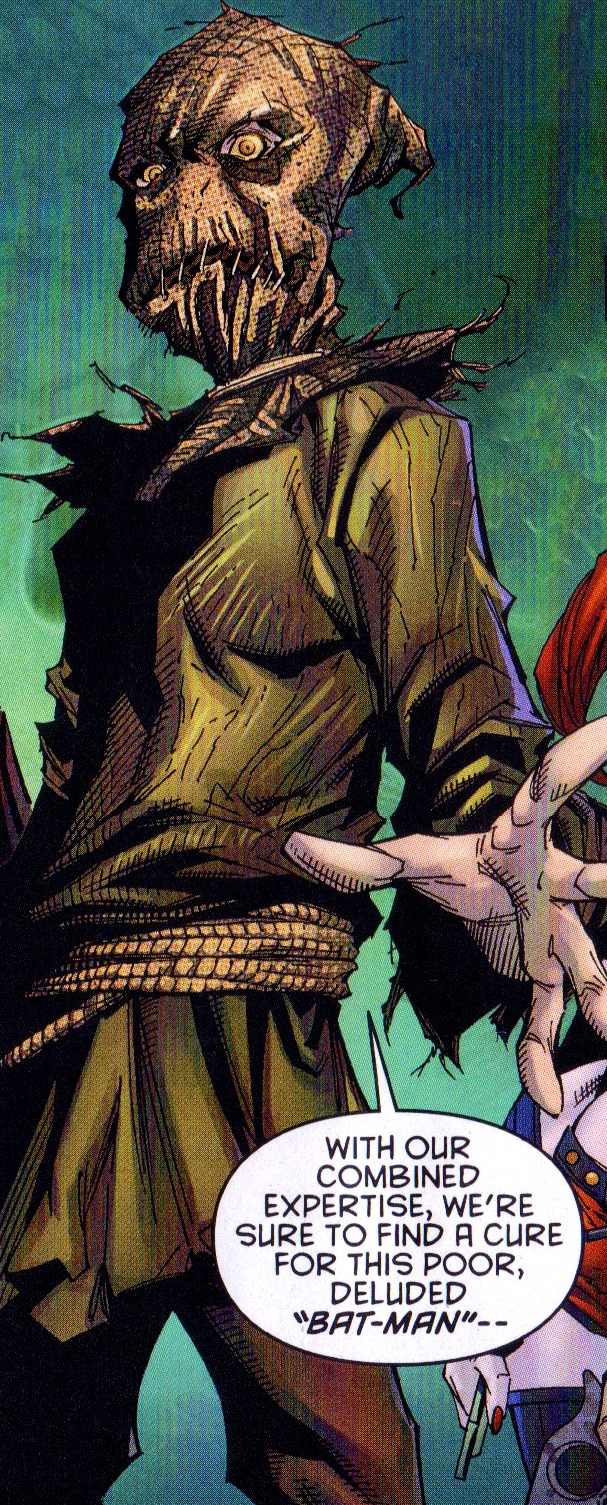
Detective Comics #28 || Scanned at 300dpi
#Jonathan Crane#Scarecriow#The Scarecrow#Batman#Detective Comics#My Scans#Issue 28#heavily edited#oh well#its easy to tell lol
55 notes
·
View notes
Text
the way some people on here reblog obviously edited pictures without a second thought 😭
#just saw a photo of sophia loren on my dash#heavily edited#they gave her a 2010s baddie makeup??#can't you see how anachronistic the makeup is?#there's tons of pictures like that in her tag on tumblr and each time they get lots of notes#and i'm always wondering first of all why would you try to fix something that doesn't need fixing#second of all what's the purpose of posting such edited pictures
11 notes
·
View notes
Text

#nature#photography#naturecore#darkart#botanic garden#flower#heavily edited#waterlilies#water lily#pond#flowercore#flower aesthetic#lemme jump in
22 notes
·
View notes
Text


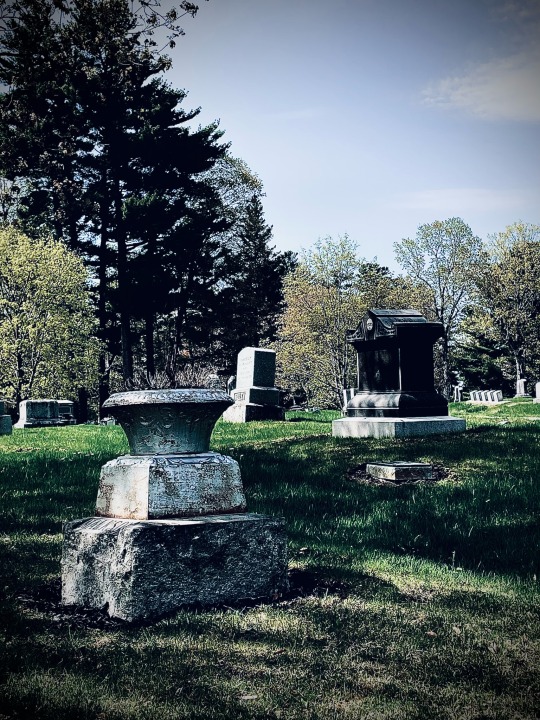
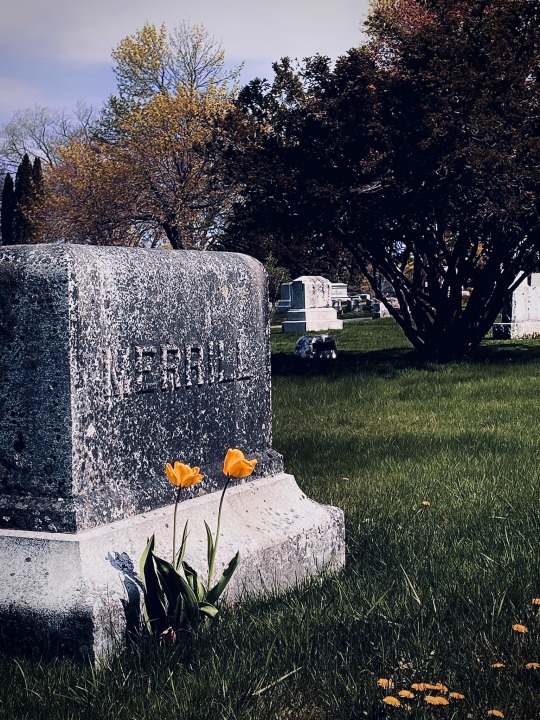
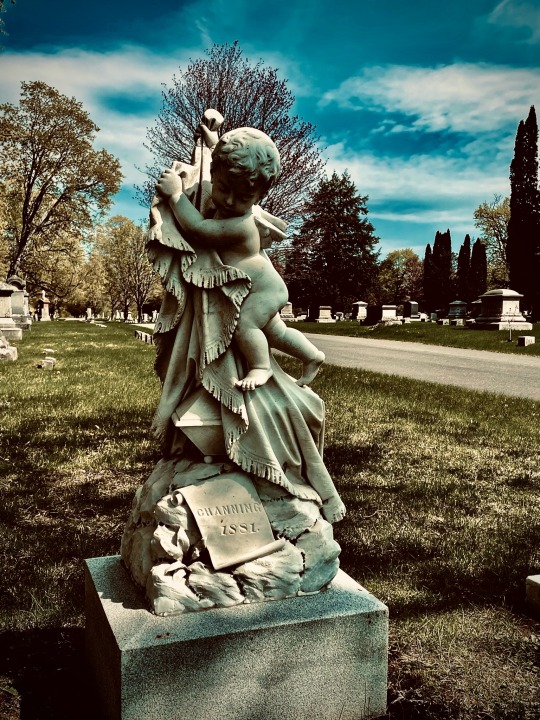

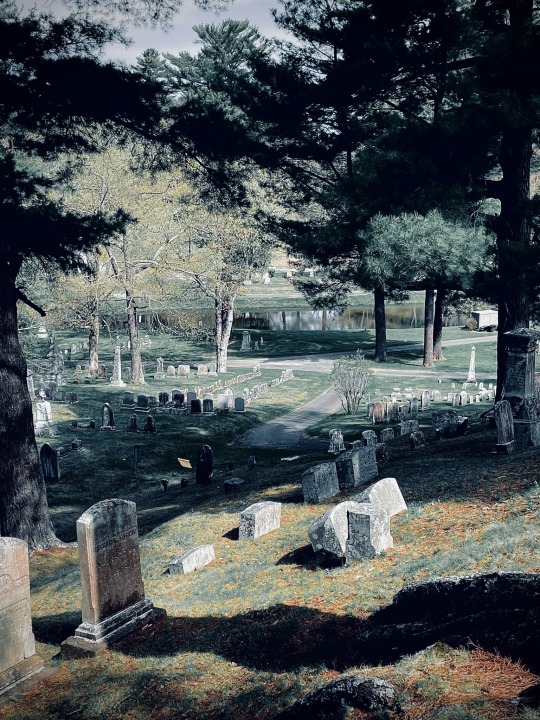
Mount Hope Cemetery
Bangor, Maine, United States
#Maine#cemetery#cemetery walking#gothcore#photography#amature#heavily edited#communewiththedead#witchy#witchy photography#graveyard stomping#graveyard#dark#nature
5 notes
·
View notes
Text
I'm going to eventually start posting my stories back up once I'm feeling motivated enough to do so.
Until then... meet my first OC. I did use AI to make her, but I had to edit it for a whole day to get it to look like how I envisioned her. I love how she turned out!

Name: Onnetta Ahonen
Pronounced As: Oh - net - tah, Ah - hon - nen
Nickname: Ona
Age: 29
Height: 5'8
Race: Finnish
Pronouns: She/Her
Gender: Female
Hair Color: Dark Brown with Red Accent Streaks
Eye Color: Light Grey
Occupation: Photographer
Description: Onnetta typically dresses in all black, giving her a very edgy and gothic appearance. Most people avoid her, but those who do have the pleasure of speaking to her discover the sweet, bubbly, charismatic woman that she is.
#5sos#5 seconds of summer#luke hemmings#michael clifford#emeto#ashton irwin#vomit sickfics#calum 5sos#ashton 5sos#michael 5sos#my ocs <3#Onnetta#phorography#ai image#heavily edited
2 notes
·
View notes
Text



0 notes
Text
NG the sound /ŋ/
How to pronounce Initial Ng in Asian Languages - Stuart Jay Raj
If the above video doesn’t help this one might https://youtu.be/fWR6tFIeOEA
The NG sound appears in English in the middle and end of words, but never as the initial sound, so it can be tricky for first language English speakers to learn. It appears frequently in Sumerian.
Most sources on Sumerian topics will denote this sound using ĝ. On rare occasions I have seen g̃, including in Gods Demons and Symbols of Ancient Mesopotamia by Jeremy Black & Antony Green one of the books I use to quickly reference things. In the ETCSL entries it appears as J, but as ĝ on their proper noun list, because why be consistent?
Some examples of Sumerian using the NG sound are:
Ĝeštinana — Goddess, Dumuzi’s sister
Ĝatumdug — Goddess, of the city state Lagaš. A daughter of An.
Saĝ-gig — How the Sumerians refered to themselves, "The Black Headed Ones"
Ĝirsu — a Sumerian City-state
Ninhursaĝa— one of the most important Sumerian mother goddesses
Ninĝirsu— a local form of the God Ninurta at Lagaš and Ĝirsu
Here are the other sounds of Sumerian by @sumerianlanguage : https://youtu.be/xHz_Lfqe–E
#i probably say this 100% in accurately#i usually gave to hear the word said correctly before I can do it#not many people talking sumerian#sumerian#polytheism#paganism#landof2rivers#queue#repost#heavily edited
5 notes
·
View notes
Text
2023-000agsddg...
Without any further context, this inconsistent and digressive fiction blog presents its first (and possibly only) movie review. What the heck guys?
Barbie (2023)
Of the movies I have seen that are based on best-selling and/or long-standing brands, Barbie stood out to me as one of the strangest, most compelling and most fun. It’s full of hilariously absurd humour peppered throughout a story that I found to be both thought-provoking and emotionally satisfying. The knowledge of Barbie’s existing brand presence might cause you to assume that the movie can only be enjoyed by women or by young girls but I disagree. Barbie is a movie for everyone. At its heart is a beautifully delivered message about the complicated and contradictory nature of being a woman in the present day. As a whole, Barbie reminds us that, no matter how long you’ve gone without changing, no matter what your purpose you think you were made for, there’s always space to imagine something new. While these themes do come through rather heavy-handedly, I think that’s necessary. They are being given the volume and importance that they both need and, honestly, deserve. In summary, Barbie is a fun and touching movie that carries its important message well and I strongly recommend it to anyone.
#This is probably what the kids are calling sideblog content but I don’t have one of those#I think this probably just reinforces the idea that I have no idea what I’m doing#which is the whole point anyway#for the most part#I’m putting my words out there so they get out of my head#but i don’t think this movie will be gone anytime soon#Barbie#Barbie 2023#Movie review#Out of character post#Heavily edited#this paragraph took me three days to write#cries
1 note
·
View note
Text
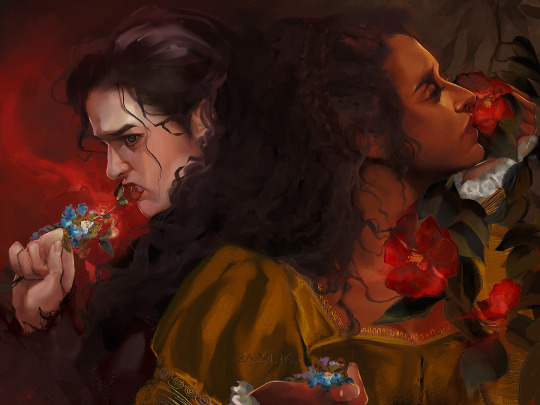
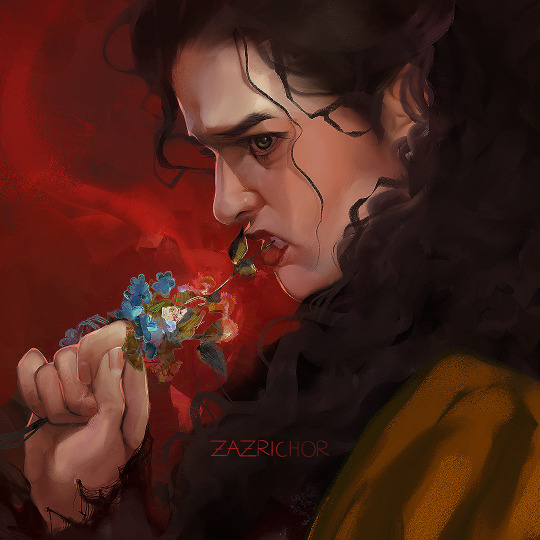
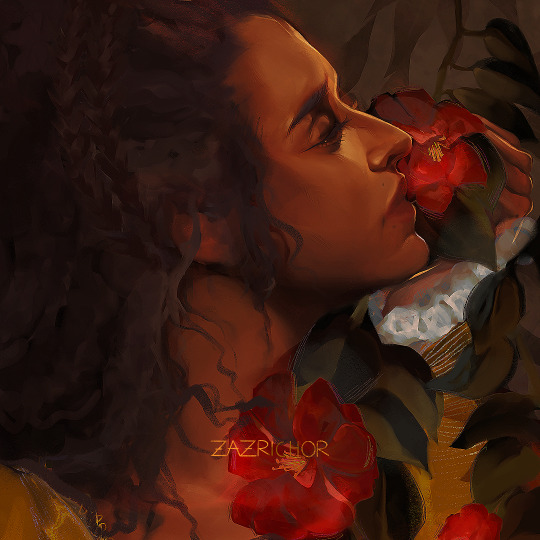
a reminder of you (and me)
#bbcmorgana#bbc guinevere#morgwen#merlinart#merlin fanart#that was my second prompt for the rvbb#obviously heavily inspired by love’s shadow by sandys & ellen terry ‘choosing’ by watts#it got claimed but alas#this was my last year’s masterstudy lmao#gwen’s dress underwent so many changes istg#EDIT: i WILL paint what i had in mind as a second prompt incentive#just don’t know when#zazrichart#procreate
3K notes
·
View notes
Text
THOUGHT GAINED: INFERNAL ENGINES
PROBLEM
The world is ending. You know it, your neighbor knows it, the dealer knows it, the jailer knows it, the king and all his men know it. All one has to do is look around to see it— the future is curdling into something pale and incorporeal. The infernal machine that is this stupid world is going to blow, sooner rather than later. So what are you doing? Why are you still here? Why is anyone still here?
SOLUTION
You are doing the only thing worth doing. You are living. *Why,* you ask? Try and remember now. Remember your mother’s hand on your shoulder. Remember the taste of a fresh catch. Remember the times when you were kind to the dogs in the valley and they did not bare their teeth. Remember the weight of a child on your shoulders. Remember the stars throwing their light against the wall of sodium and smog. Remember singing until your throat was raw. Remember crying just as loudly and publicly, and the gentleness with which someone opened your curled fist and pressed a handkerchief into your palm. Crying, laughing, running, eating, screaming, haunting, loving, fighting, fighting, fighting. The fight fuels you, and you fuel the fight. You run yourself ragged just for a chance to keep running. You never stop. You cannot stop. The world depends on it. *You* are the infernal engine. You are the world. And, simply put: you want to live.
#disco elysium#thought cabinet#suicide tw#smth a little different#this is actually smth i would like to include in a full length one shot#but i think it’s gonna get edited p heavily for the fic this is just a first pass at it#but. i like this draft of it and i want to archive it#feels like me and all my loved ones have death on their minds most of the time lately…#reminding myself that keeping myself and all the ppl i care about on this earth is what everything is about#always and forever
9K notes
·
View notes